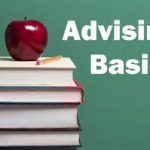COMPETENCIES AT WESLEYAN: Approaches to Consider in Your Plan of Study
Flexible Framework for Considering Competencies
While at Wesleyan, students engage in the deep study of an academic field once they have declared a major, and they develop academic breadth through their general education coursework. In addition, they will also build broad, interdisciplinary skills through all of their curricular, co-curricular, and extracurricular activities. Wesleyan has developed a flexible framework built on four competencies to allow students to engage voluntarily in a process of reflection (both in conjunction with advisors and on their own).
The four competencies:
- Mapping = navigating complex environments (NCE)
- Expressing = writing, expressing, communicating (WEC)
- Mining = quantitative analysis and interpretation (QAI)
- Engaging = negotiating intercultural differences (NID)
Mapping = Navigating Complex Environments (NCE)
Mapping is defined as the ability to examine the relationship of objects and spaces in the material and imagined worlds. It involves developing tools to create, manipulate, and navigate constructed and natural environments and charting movement through and interactions with space and its consequences.
Mapping courses may include courses across the curriculum, from the arts (e.g., dance, studio art, and art history), to the natural sciences and mathematics, as well as courses from interdisciplinary programs. Example skills include typography, computation, material science, modeling, and mapping.
Expressing = Writing, Expressing, Communicating (WEC)
Expressing is defined as the ability to express thoughts, ideas, and emotions to others effectively and concisely through a variety of media.
Expressing courses are principally but not solely in the humanities, arts, and social and behavioral sciences. These courses assign written, verbal, and creative projects, and performances that help students develop their ability to express thoughts and ideas to others.
Mining = Quantitative Analysis and Intepretation (QAI)
Mining is defined as the ability to use numerical ideas and methods to describe and analyze quantifiable phenomena. It involves learning about the measurement, analysis, summary, and presentation of information, including about the natural world, as well as answering questions, solving problems, making predictions, and testing and constructing theories by employing mathematical, statistical, logical, and scientific reasoning.
Mining courses are principally but not solely in mathematics, natural sciences, and social and behavioral sciences.
Engaging = Negotiating Intercultural Differences (NID)
Engaging is defined as the ability to comprehend and respect diverse cultural heritages and perspectives in relation to their wider historical and social contexts. It involves reading, speaking, or understanding a second or third language (contemporary or classical); gaining experience working, studying, or traveling abroad or in other unfamiliar cultural contexts; and participating in the political and social life of local and global communities.
Engaging courses may include courses across the curriculum, from language, literature, and culture courses, to courses in history, science in society, religion, government, and philosophy, among other areas.
 elsewhere at the end of the fall semester. Don’t buy your ticket yet! Wait until you know your final exam schedule. While some courses have papers, others have sit-down exams that can be scheduled up to the last day of finals, so you should wait until you have confirmed your course schedule before purchasing any tickets. You should not assume that you will be able to take your exam earlier than its scheduled time.
elsewhere at the end of the fall semester. Don’t buy your ticket yet! Wait until you know your final exam schedule. While some courses have papers, others have sit-down exams that can be scheduled up to the last day of finals, so you should wait until you have confirmed your course schedule before purchasing any tickets. You should not assume that you will be able to take your exam earlier than its scheduled time.


 in your “Orientation Checklist & Resources,” make sure that you complete and submit it in within the next week. It is a good exercise in processing the past as you think about the future and helps you to focus in on how best to take advantage of your educational opportunities at Wes.
in your “Orientation Checklist & Resources,” make sure that you complete and submit it in within the next week. It is a good exercise in processing the past as you think about the future and helps you to focus in on how best to take advantage of your educational opportunities at Wes. There will be a pre-reg link in the alert box of your Wesportal. The upper frame will open in WesMaps, the online curriculum, and the bottom frame will be where you will rank a list of seven first-year seminars and seven intro/other courses.
There will be a pre-reg link in the alert box of your Wesportal. The upper frame will open in WesMaps, the online curriculum, and the bottom frame will be where you will rank a list of seven first-year seminars and seven intro/other courses. providing advice on how to get the most out of your relationship with your faculty advisor as you build your program of study over the course of your Wesleyan career. The Handbook also provides information about academic departments and programs, graduation requirements, each year’s journey through Wes, study abroad, the major declaration process, academic support services for students, and summary procedures of the Honor Board and the Student Judicial Board. The Common Advising Questions section is also very informative.
providing advice on how to get the most out of your relationship with your faculty advisor as you build your program of study over the course of your Wesleyan career. The Handbook also provides information about academic departments and programs, graduation requirements, each year’s journey through Wes, study abroad, the major declaration process, academic support services for students, and summary procedures of the Honor Board and the Student Judicial Board. The Common Advising Questions section is also very informative.